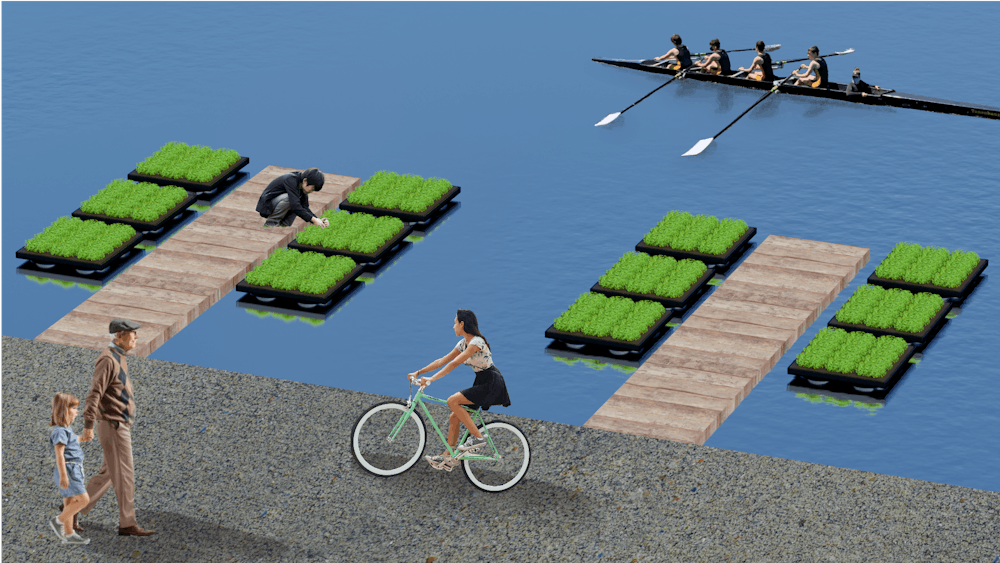Every day, people around the world suffer from a lack of fresh and affordable food, and this is unfortunately not a problem that affects just a few of us. In fact, it is estimated that 3 billion people around the world today do not have access to healthy produce. The city of Philadelphia, Pennsylvania has struggled with food deserts—geographic areas, where residents have limited access to affordable, nutritious, and fresh food—for decades, particularly in its lower-income neighborhoods in North Philadelphia. In fact, more than 50% of residents in North Philadelphia live in a food desert and 25% of Philadelphia youth eat one or fewer daily servings of fruit or vegetables. Residents there have limited access to full-service grocery stores and fresh food retailers that provide options for healthy green produce. Instead, they often have to rely on convenience stores, fast-food restaurants, and other sources of low-nutrient, processed foods.
The prevalence of food deserts in Philadelphia is closely tied to socioeconomic disparities. Food deserts disproportionately affect low-income communities and communities of color, as residents have limited transportation options and less disposable income to afford nutritious and organic produce, which is traditionally more expensive than fast-food options. Could the solution to urban food deserts lie in cities’ typical proximity to natural waterways?
Food deserts are a complex issue with significant social and health implications. Addressing them would be a critical step in improving public health and reducing health disparities in cities like Philadelphia.
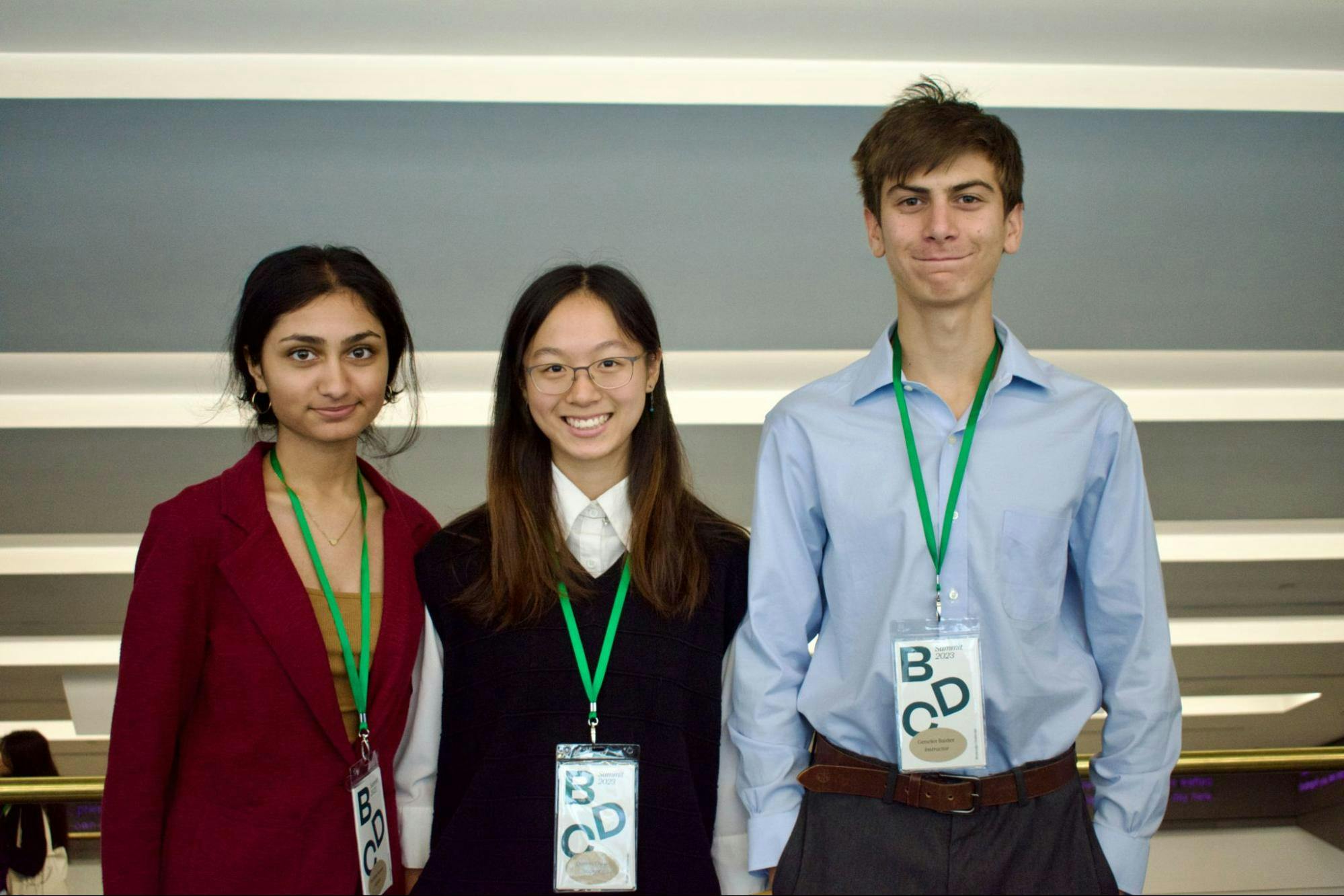
Meet the Team
Queena is a senior at Julia R. Masterman who hopes to create start-ups that benefit her communities. Queena actively works in marketing for nonprofits and heads the Asian-American community at her school.
Tino Karakousis is a senior at Julia R. Masterman High School who loves everything STEM and community service-oriented. He hopes to become a biomedical researcher in the future, conducting cancer and virology research.
Harshita Parmar is a freshman at Temple University where she is majoring in Bioengineering. In the future, she would like to focus on creating/improving medical devices to meet the needs of hospitals and modern-day society.
These three students decided to team up for the Biodesign Challenge based on their shared passion for creating a solution focused on agricultural and water remediation that would benefit their communities.
Project Conceptualization:
As part of the Biodesign Challenge and Aula Future design program, Queena, Tino, and Harshita explored innovative biology and design concepts to reimagine a sustainable future. Their endeavor led them to embrace the idea of regenerative design, a powerful approach they eagerly incorporated into their project.
Upon researching food systems in the United States, the team uncovered a pressing issue that hit close to home: the prevalence of food deserts within their hometown of Philadelphia. Taking the opportunity of the design challenge to make a local impact, they decided to harness the natural geographic landscape to their advantage. Philadelphia is flanked by two major rivers: the Schuylkill River and the Delaware River, and the team noticed that these bodies of water could offer a convenient solution to reach underserved food desert communities in North Philadelphia.
The team wanted to create a project that was more than solving a problem in their community, but also that regenerated its surrounding environments by saving the endangered mussel population, cleaning the Schuylkill River, and providing fresh produce to those who needed it.
Enjoy what you're reading?
Signup for our newsletter
Empowered by this research, they asked themselves: “What if we could grow healthy crops that are accessible, resilient, and sustainable in Philadelphia while regenerating the surrounding environment?”

Meet LilyPad
LilyPad is an innovative floating community garden that provides fresh, affordable produce to anyone, with a priority on communities battling food insecurity. The system utilizes capillary action to filter water from the Schuylkill River through several layers of filtration, including freshwater mussels, sand, biochar, and gravel. This newly filtered water is used to water crops in a self-regulating system with little need for human interference and is designed to be easy and affordable to assemble.
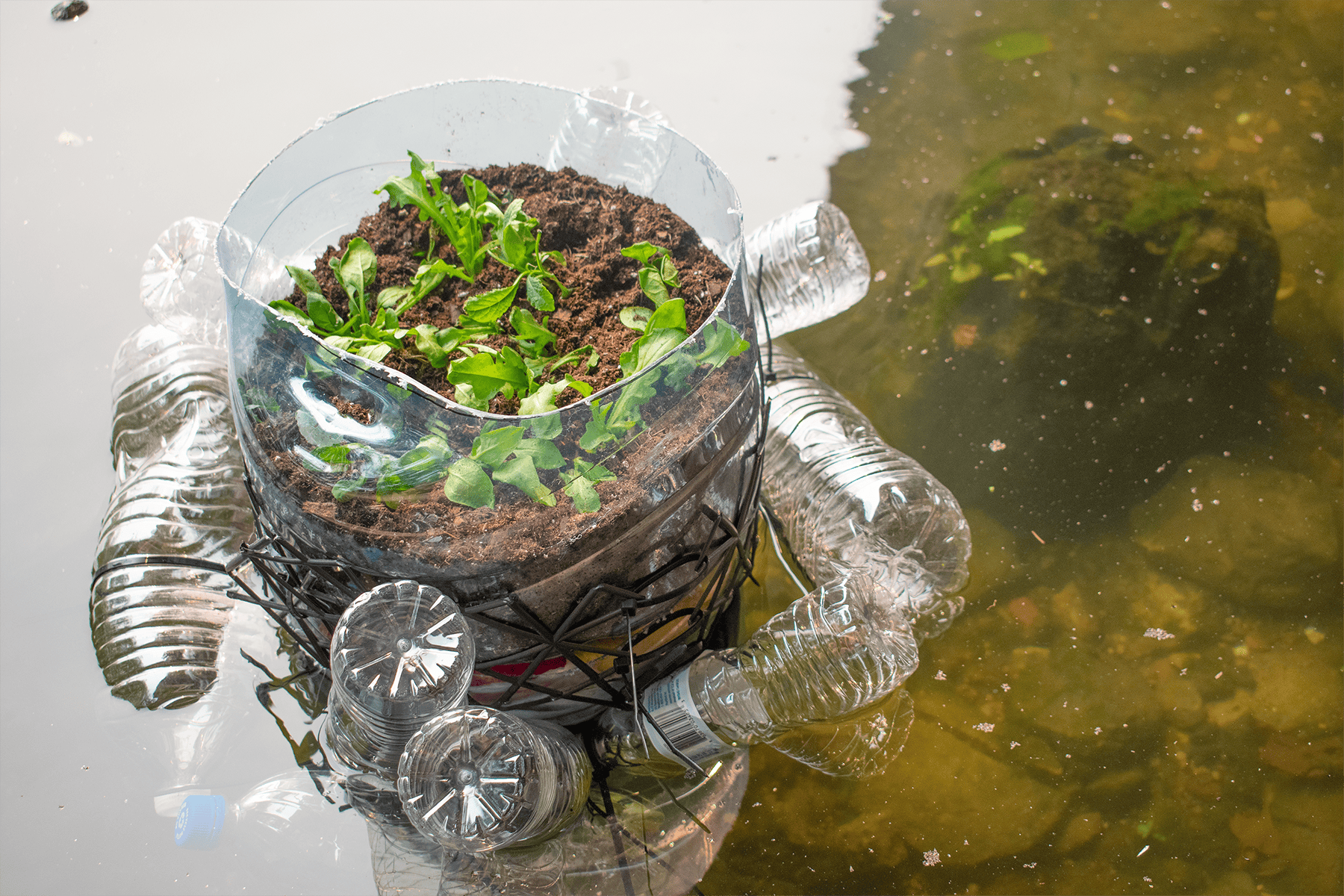
Project Overview
The LilyPad team researched the problems that caused food insecurity extensively, particularly from the food supply side. They discovered that the problem was more socioeconomically complex than they had realized. Taking this into account, they began looking at the problem on a macro scale.
Community gardens and food-sharing programs were identified as existing solutions. However, each held its pros and cons, particularly in accessibility for food desert communities. The team talked to Rosaline Yang, the Youth Program Director at the Philadelphia Chinatown Development Corporation, who heads a weekly food distribution program. They learned that hundreds of the elderly population in Chinatown would line up to receive food simply because they could not afford to buy all of their produce needs on their own. With such high demand, the food distribution oftentimes lacked the resources to provide all residents with produce, citing the growing issue of cost and supply.
With this, the team examined another commonly employed solution: the community garden. They liked the community involvement and education that community gardens generated but found that the setup and maintenance costs of community gardens were often too high for low-income communities, the very communities they were aiming to serve.
Thus, the team ventured to create a new sort of community garden system, where the practice of growing fresh food would be taught, learned, and built by the community in a way that harnessed Philadelphia’s natural resources to minimize the cost of projects. After analyzing Philadelphia’s ecosystems, the team’s ideation process came to center around harnessing Philadelphia’s abundant natural waterways to irrigate crops for communities. The idea of a floating community garden was born.
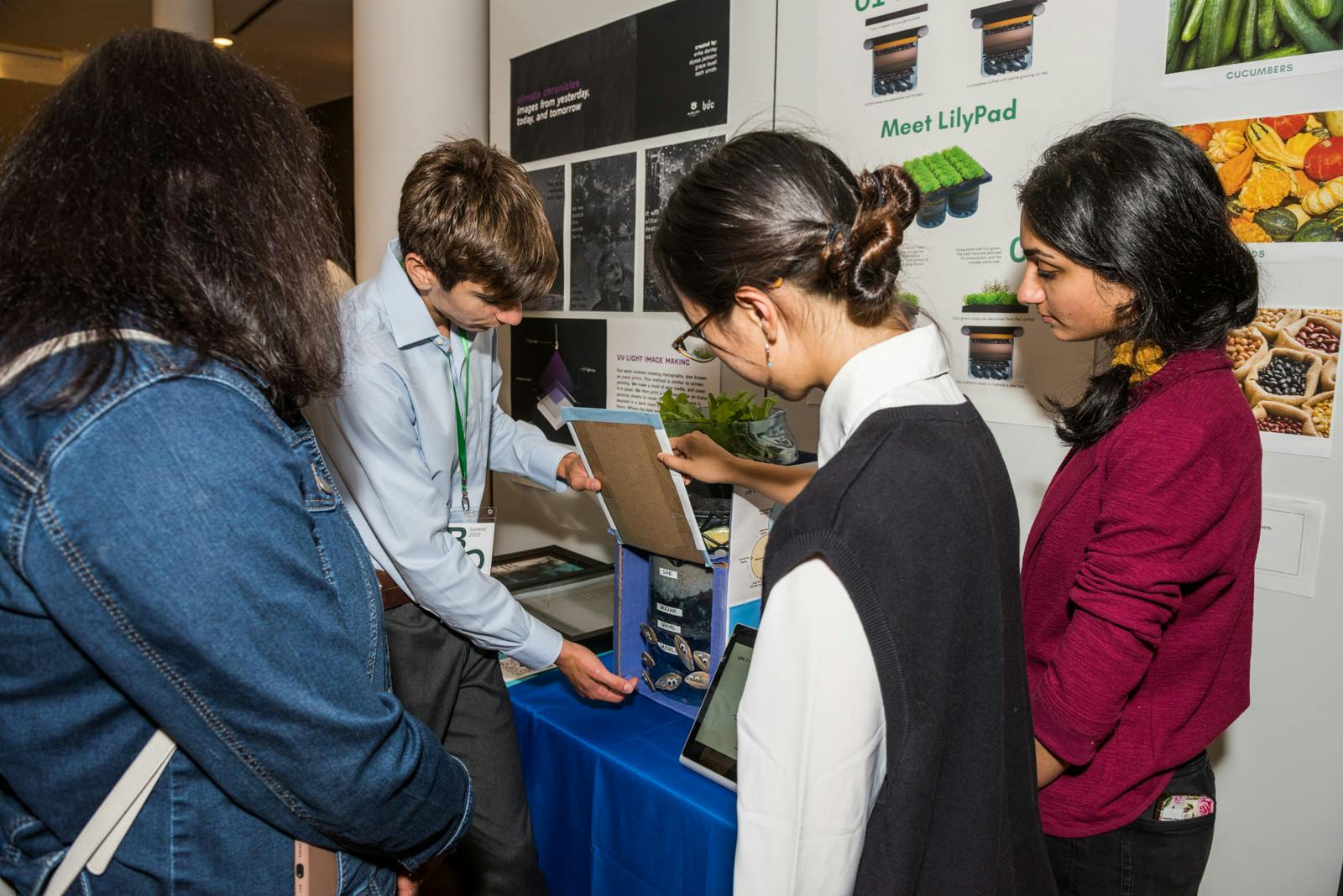
Throughout the team’s design process, it was essential to make the structure as sustainable, organic, and low-tech as possible. To ensure that the water being used to irrigate the crops was safe for human consumption, the team combined layers of sand, bio-char, gravel, sponges, and cloth in a 5-gallon water jug for filtration. They also conducted extensive research on edible plants that would soak in the least amount of toxins as an extra layer of protection. And to do the vertical work of lifting the water from the river up to where the plants were, the team settled on using capillary action to pull the water up through the several stages of filtration.
Finally, the team decided to grow the plants in a detachable cloth pot at the top of the structure, made of recycled materials, so that the main foundation of each LilyPad could continuously stay anchored in the water, making the harvesting process much easier. After testing the design in the Schuylkill River, the team found that the structure successfully reduced the contamination of the water used for irrigation and kept the soil in which the plants were growing well-hydrated.
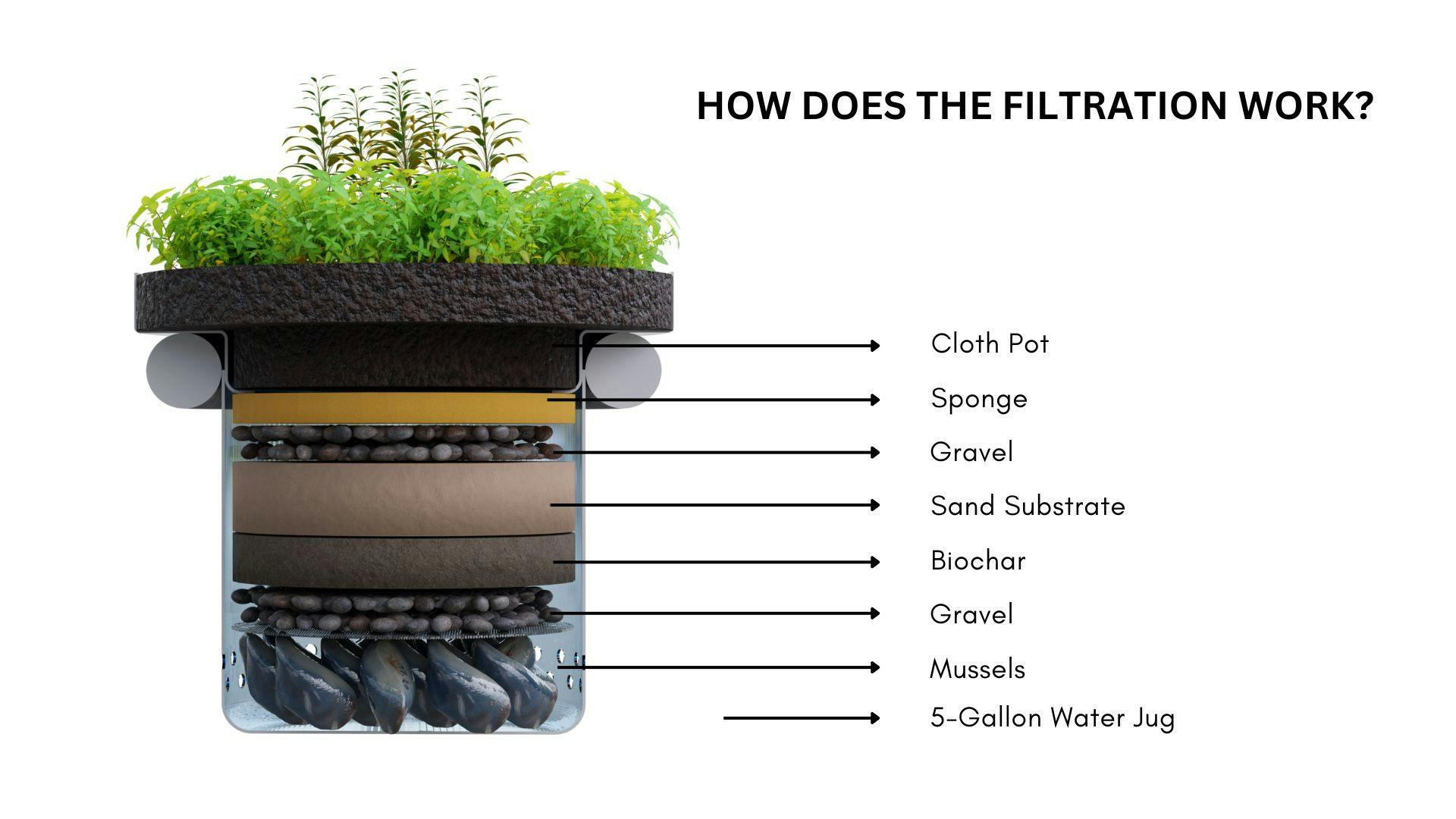
However, the team recognized that food insecurity was a problem that could not be solved by a technical solution alone, but rather one that comes with components aimed at tackling the social complexities that accompany food insecurity as well. In response, the team decided to utilize the vast network of community centers across Philadelphia to create educational workshops that provided youth from underprivileged communities to create LilyPads for their own communities, germinate their own cloth trays, and learn about the importance of eating fresh, healthy food. Assembled LilyPads would be floated on the river for the crops to germinate and then be brought back to the same communities for the centers to hold farmer's markets and generate profits for future programming. Any waste from the markets would be redistributed to LilyPad for composting for future crop growth.
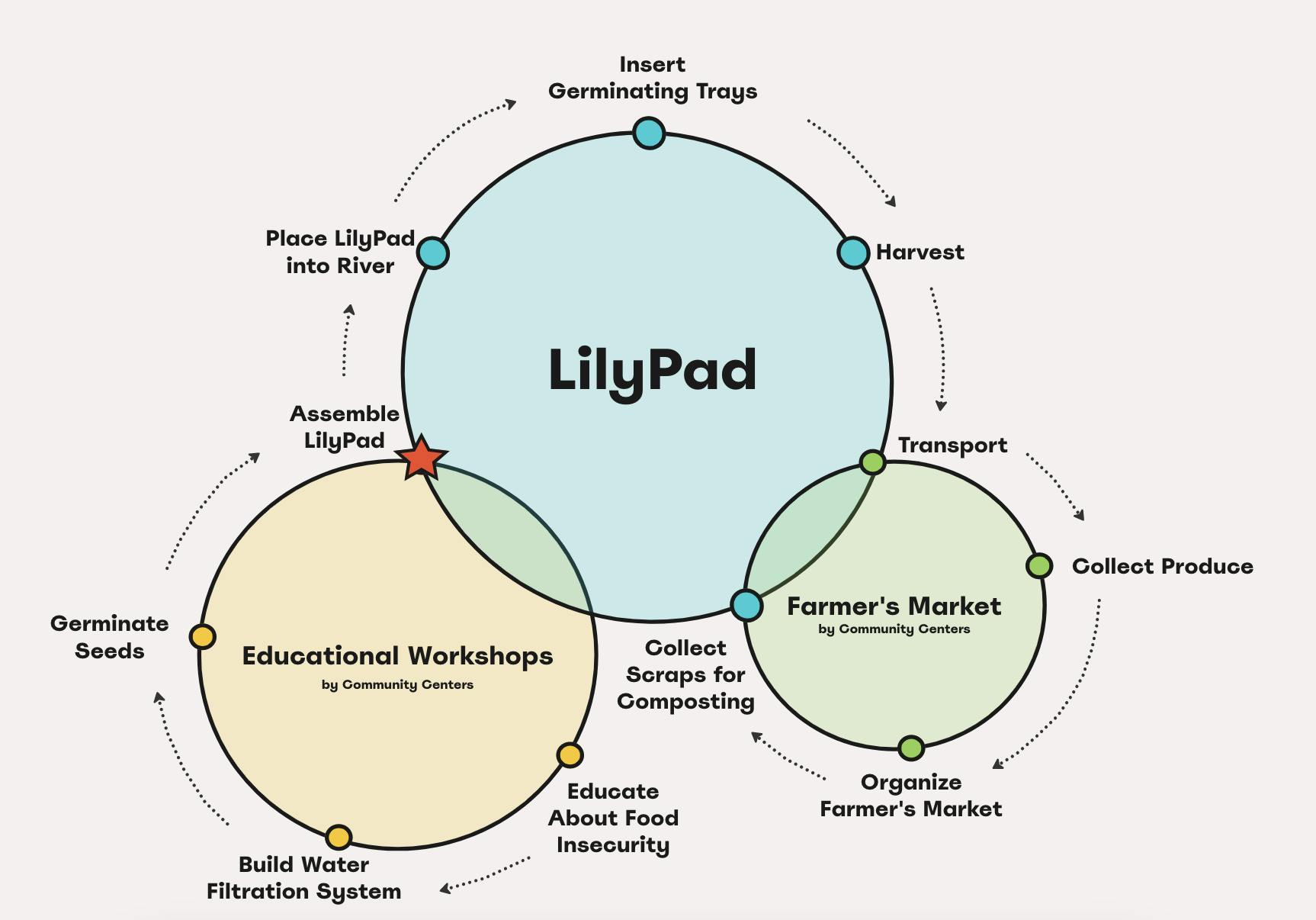
The LilyPad team aimed to not only grow fresh, healthy food for low-income communities in a sustainable way but to truly regenerate Philadelphia’s waterways in the process. After talking with Lance Butler, a Senior Scientist at the Philadelphia Water Department, they learned that mussels, once abundant in these waterways, were now endangered and in need of revitalization. Moreso, mussels possessed the remarkable ability to filter water at a rate of 15 gallons per day, a skill that could be harnessed to improve the overall water quality of the Schuylkill and Delaware rivers. The team decided to have LilyPad double as a mussel habitat, both employing mussels’ natural filtration abilities and providing them a protected space to grow until they could be released into the wild to repopulate the endangered mussel populations of the Northeast.
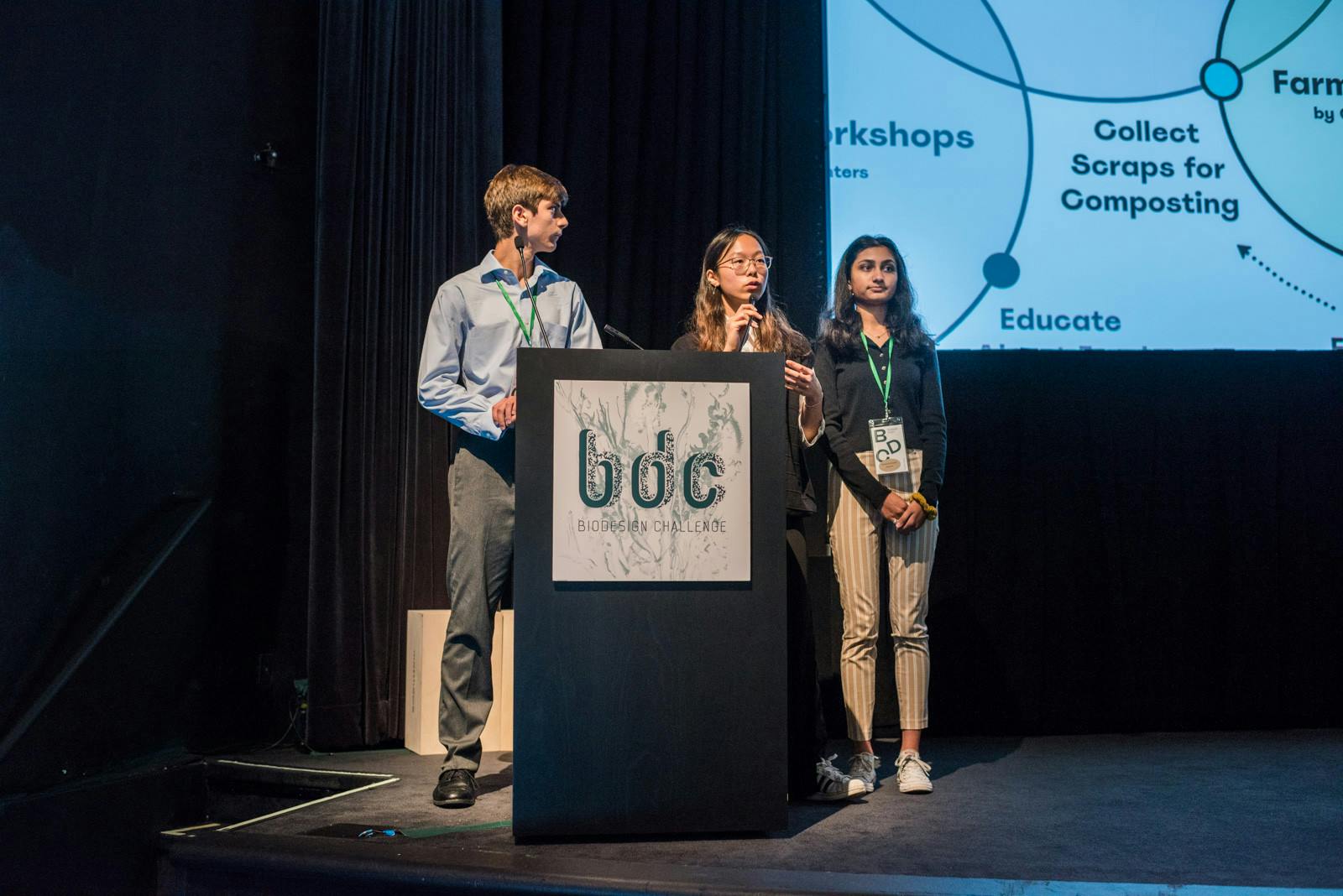
Team LilyPad presented at the Biodesign Challenge in New York City, where they were selected as finalists from over 500 competing students and shared their projects at the Museum of Modern Art.
Next Steps
The team wanted to further their development of LilyPad. Specifically, the team wanted to address concerns of the viability of LilyPad in the face of natural and man-made disasters and changing climate. The team was also concerned that LilyPad’s success would be hampered by the pollution stigma surrounding Philadelphia’s rivers, and wanted to identify ways to demonstrate LilyPad’s ability to effectively filter water for human consumption.
For the LilyPad Team, the Biodesign Challenge was only the first step, and in order for LilyPad to truly flourish into having an identifiable and lasting impact on Philadelphia’s communities, the team identified key next steps to pursue:
Firstly, the team hopes to continue engineering designs that make LilyPad more resilient against natural disasters, water pollution, and changing seasons.
Secondly, they hope to reach out to the local Philadelphia network to launch LilyPad. After visiting the Discovery Center, a youth environmental organization, to float their initial prototype, they became inspired to host their own build-workshop and engage other members of the youth community in creating their own floating LilyPads. Additionally, they hope to partner with Fairmount WaterWorks in officially floating LilyPad on the Schuylkill River in Philadelphia.
-
Lastly, the LilyPad team would like to partner with Drexel University and the University of Pennsylvania, both of which are located beside the Schuylkill River, to test their crops for toxins in preparation for their first farmer’s market.
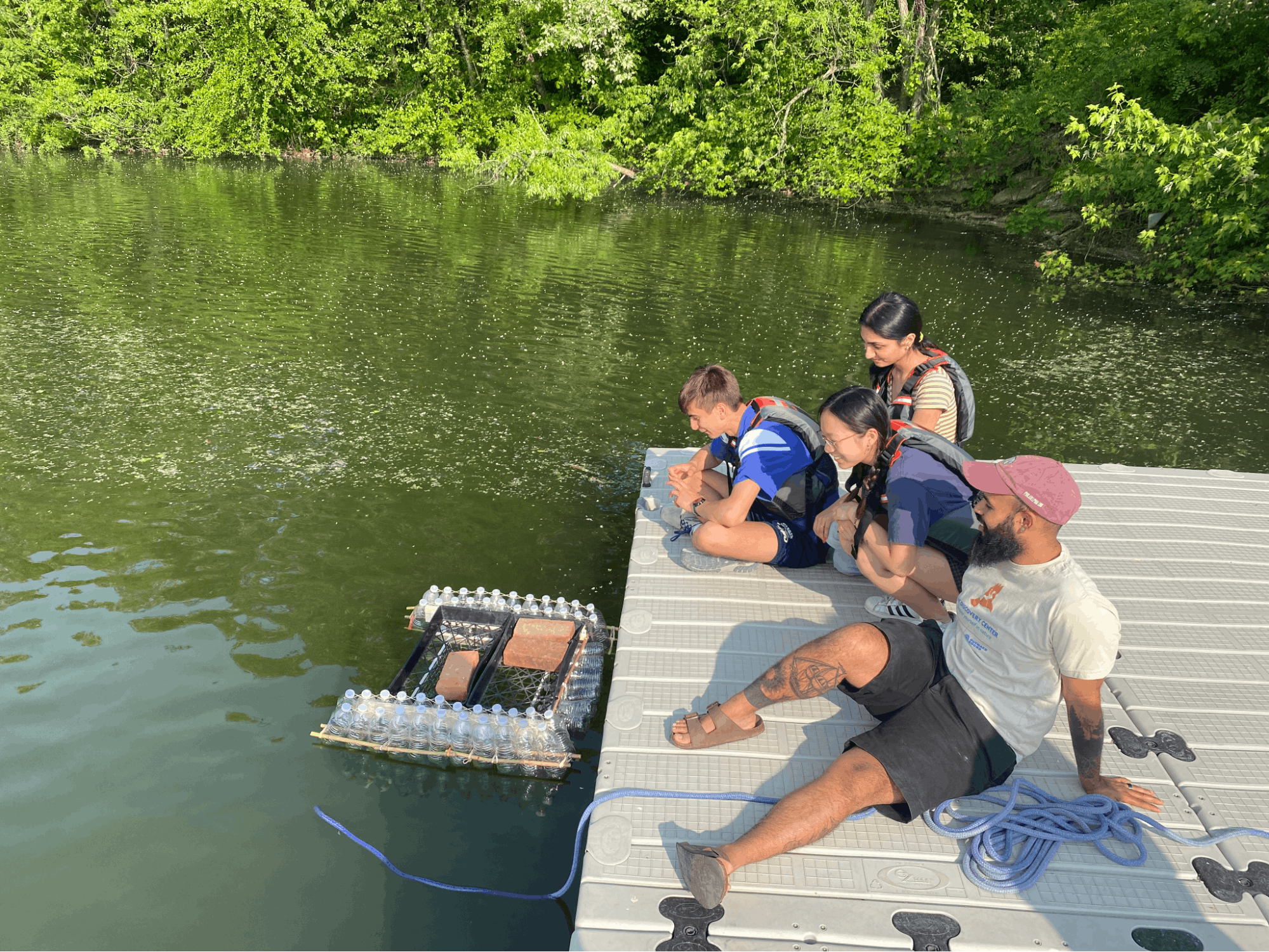 Photo by Genefer Baxter
Photo by Genefer Baxter
Conclusion
The development of projects like LilyPad provides a glimpse of how the future can be reshaped to become more sustainable and healthy for future generations. Food insecurity is a growing concern as the world’s population dramatically increases with every year. In the face of these issues, LilyPad strives to revolutionize food production in a future where access to affordable, fresh, and nutritious food is increasingly challenging, At its core, LilyPad is a project centered around community engagement. It inspires community members to learn more about the issue firsthand by taking part in germinating seeds.
LilyPad inspires a future where innovative solutions and sustainable designs go hand in hand to prioritize the well-being of the Earth and its people.

